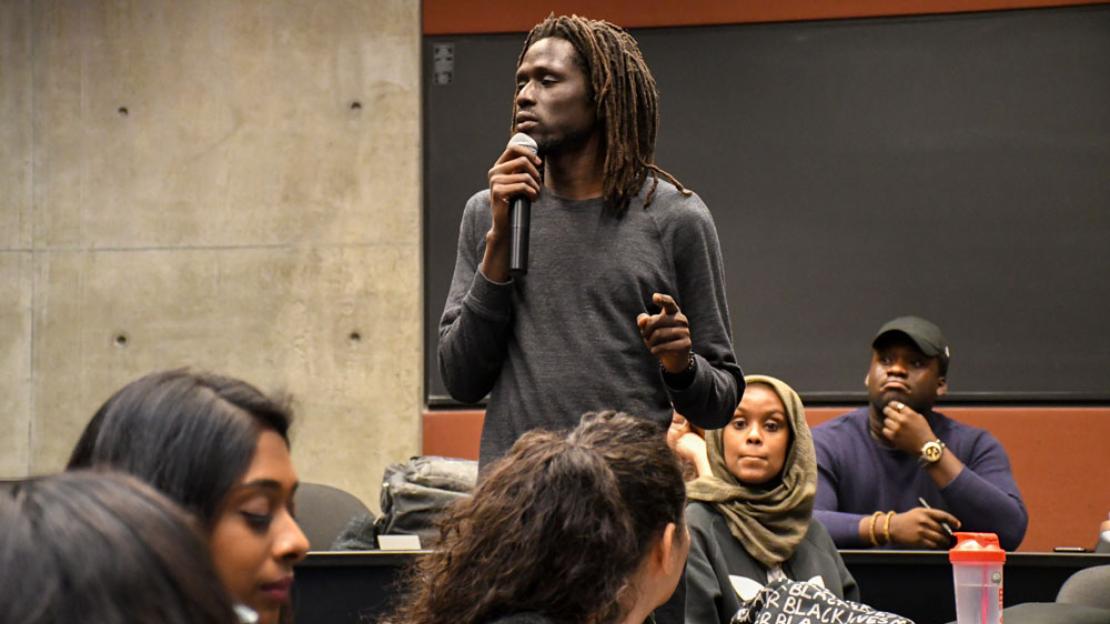U of T Scarborough welcomed artist and activist Emmanuel Jal to kick off Black History Month with a presentation on the importance of understanding and education in efforts to spread peace.
“When I first learned pi at school in England I couldn’t get my head around it… We feared math class and pi because we didn’t understand it,” said Jal, speaking at an event hosted by the Scarborough Campus Student Union. “The same thing happens with people, we fear people we don’t understand and we have war. If we understood each other who wouldn’t get along?”
Jal opened his discussion by singing along to his music video for “We Want Peace” which features appearances from celebrities such as Alicia Keys, George Clooney, Peter Gabriel, Jimmy Carter and Richard Branson.
Born in the village of Tonj, in what is now South Sudan, Jal was raised primarily by his mother until she was killed by pro-regime forces when he was seven years old. His father fought with the Sudan People’s Liberation Army (SPLA) at the onset of the second Sudan civil war and missed most of Jal’s childhood.
Jal fled, as many Sudanese families did, to Ethiopia in hopes of escaping the conflict and finding a school to attend. During his journey, Jal was captured by the SPLA and trained to fight against the government before he was even 10 years old. He risked dying of starvation by walking through the savannah again — this time for three whole months — in order to escape the SPLA camps that trained children to kill. He watched other escaped child soldiers take their own lives with machine guns they had been given in training. Many more died starved and dehydrated.
“One thing I know is… when you’re starving the first day is difficult, the second day is difficult, the third day is sweet. Death is calling to you and you can easily fall asleep and not wake up,” said Jal.
Jal also recalled being injured and weary in the desert without food, bandages or a means to navigate. He described the feelings that pushed him to put his gun to his head, holding it with his hands and feet as he was too weak to lift it, he squeezed the trigger with his toes but the gun misfired.
“The bullet had failed, I passed out from the shock of what I was doing but when I awoke still in pain I knew there was a reason I had to keep living,” said Jal.
The importance of failure is a central pillar of Jal’s message of peace and understanding, as he looks at each failing – either in a classroom or a warzone – as a chance to learn.
“A teacher asked me, ‘Do you know what UN on your report card means? It means ungraded, failing would be better, your life is useless,’” said Jal. “So I made it my goal to fail. Physics, chemistry, math, I even got a UN in English, and what am I speaking now? I went back to school and decided to fail."
“We have to understand that fear is the beginning of knowledge – how do we gain understanding? By exposing ourselves to something [we don’t understand],” said Jal.
